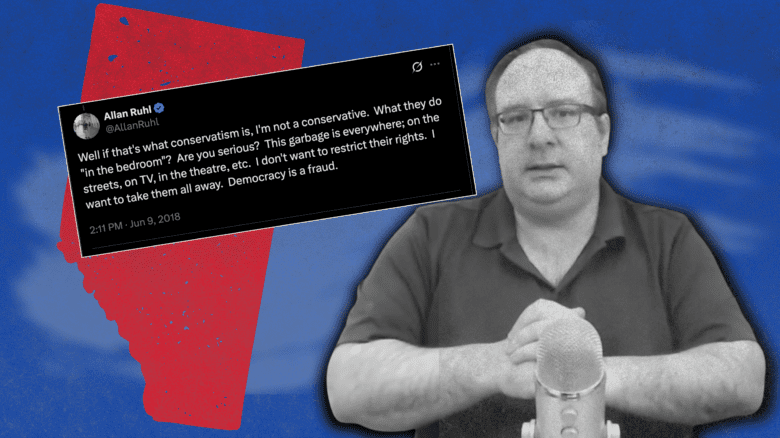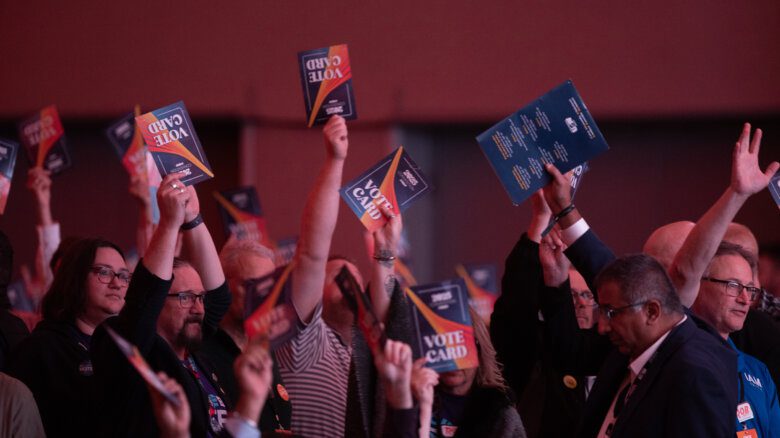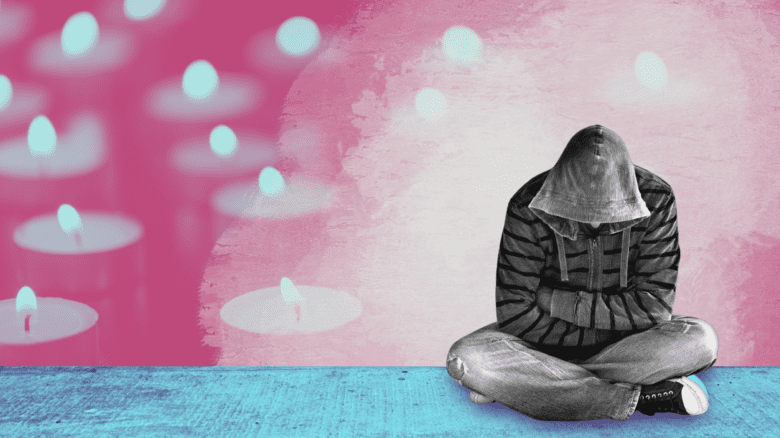It’s been a busy year on the LGBTQ2S+ politics front. From historic laws and growing queer and trans representation among elected officials, to an onslaught of legalized hate around the world, LGBTQ2S+ communities fought for our rights on a global scale in 2021. Sometimes we won, sometimes we lost—but the fight rages on.
As 2021 draws to a close, here’s Xtra’s list of the biggest LGBTQ2S+ political stories of the year.
Canada elected the most LGBTQ2S+ MPs in its history
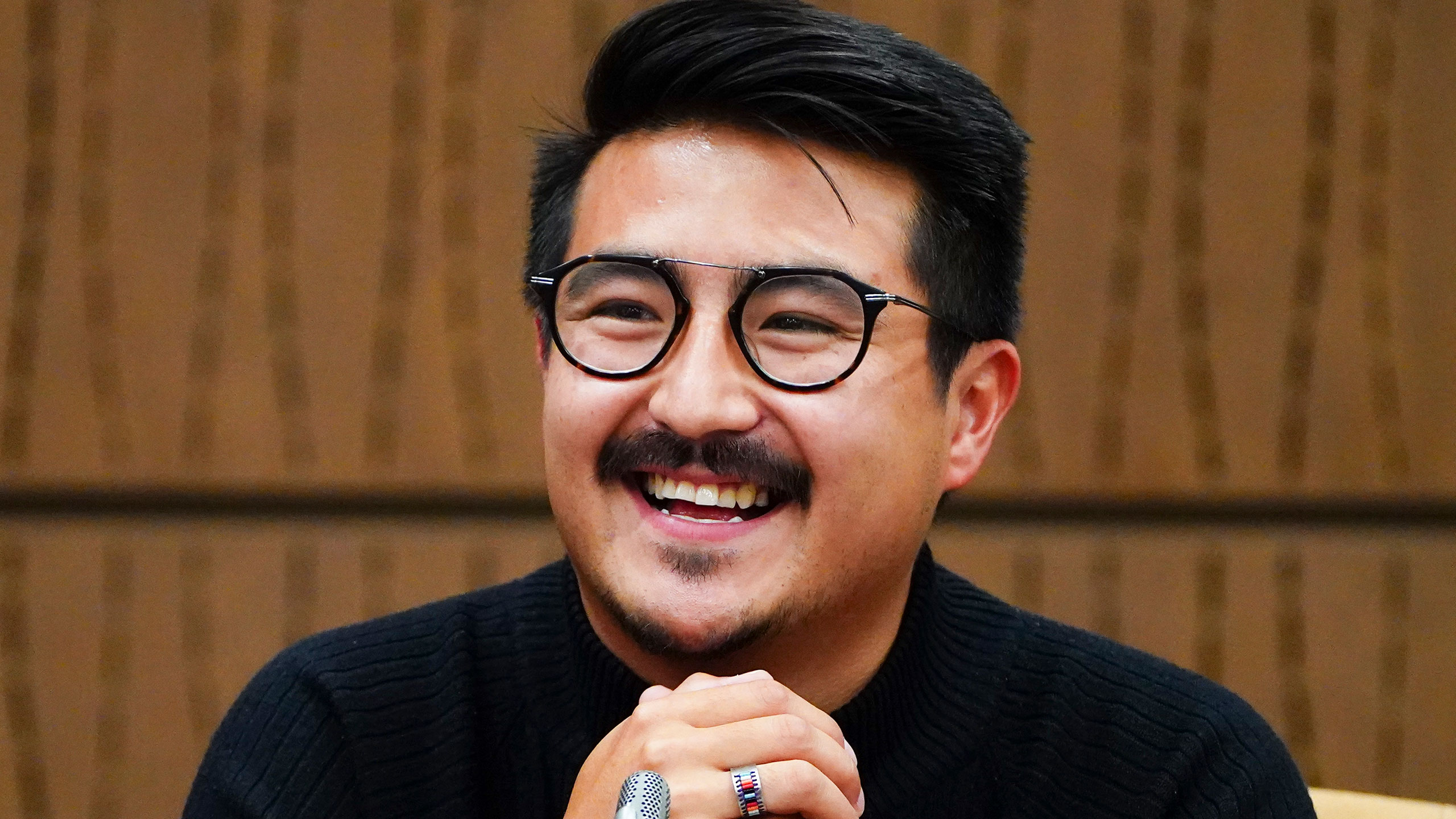
Credit: The Canadian Press/Sean Kilpatrick
When Prime Minister Justin Trudeau called a snap election this summer in the midst of a gruelling pandemic, few Canadians were happy about it. They were even less excited when, after a 36-day campaign, little changed: seat counts remained relatively stable for all parties, and the Liberals yet again formed a minority government.
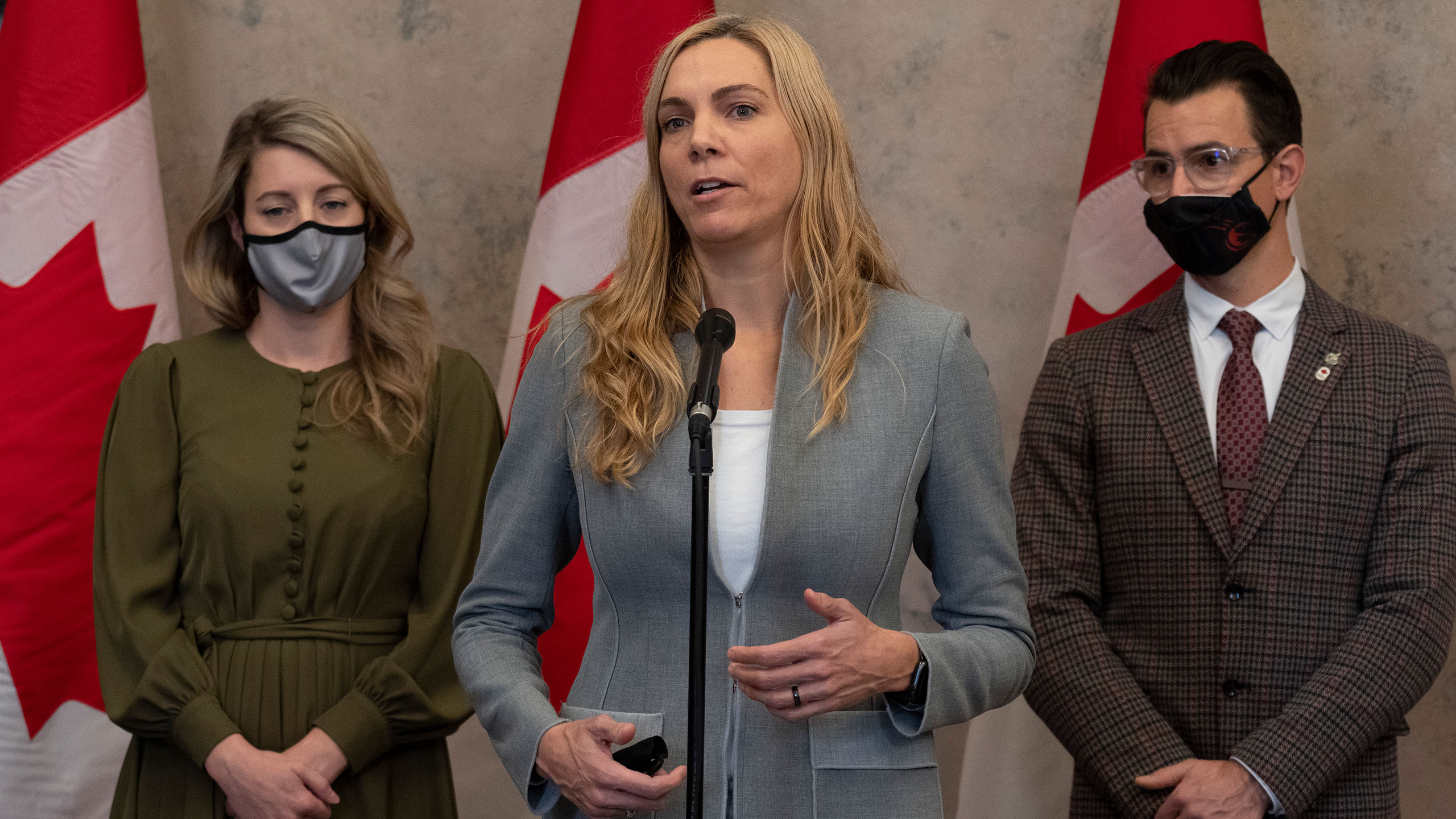
Credit: The Canadian Press/Adrian Wyld
But there was one monumental change for our queer and trans communities: eight openly LGBTQ2S+ candidates were elected, doubling the number of queer MPs since 2019 and making up the queerest Canadian Parliament yet. Those elected included two women—Ontario Conservative MP Melissa Lantsman and Quebec Liberal MP Pascale St-Onge—and Canada’s first Two-Spirit MP, Alberta NDP MP Blake Desjarlais. “Our society has never needed young queer folks more than it does now,” Desjarlais told Xtra’s Mel Woods after his historic win.
Then Trudeau one-upped that news: on Oct. 26, the PM swore in the country’s queerest Cabinet ever. That included St-Onge as minister of sport, Alberta’s Randy Boissonnault as minister of tourism and Newfoundland and Labrador’s Seamus O’Regan as minister of labour. And while there’s still plenty of work to be done on the representation front, 2021 showed promise for our communities—a slow, much-needed march toward progress.
Trans representation won, too
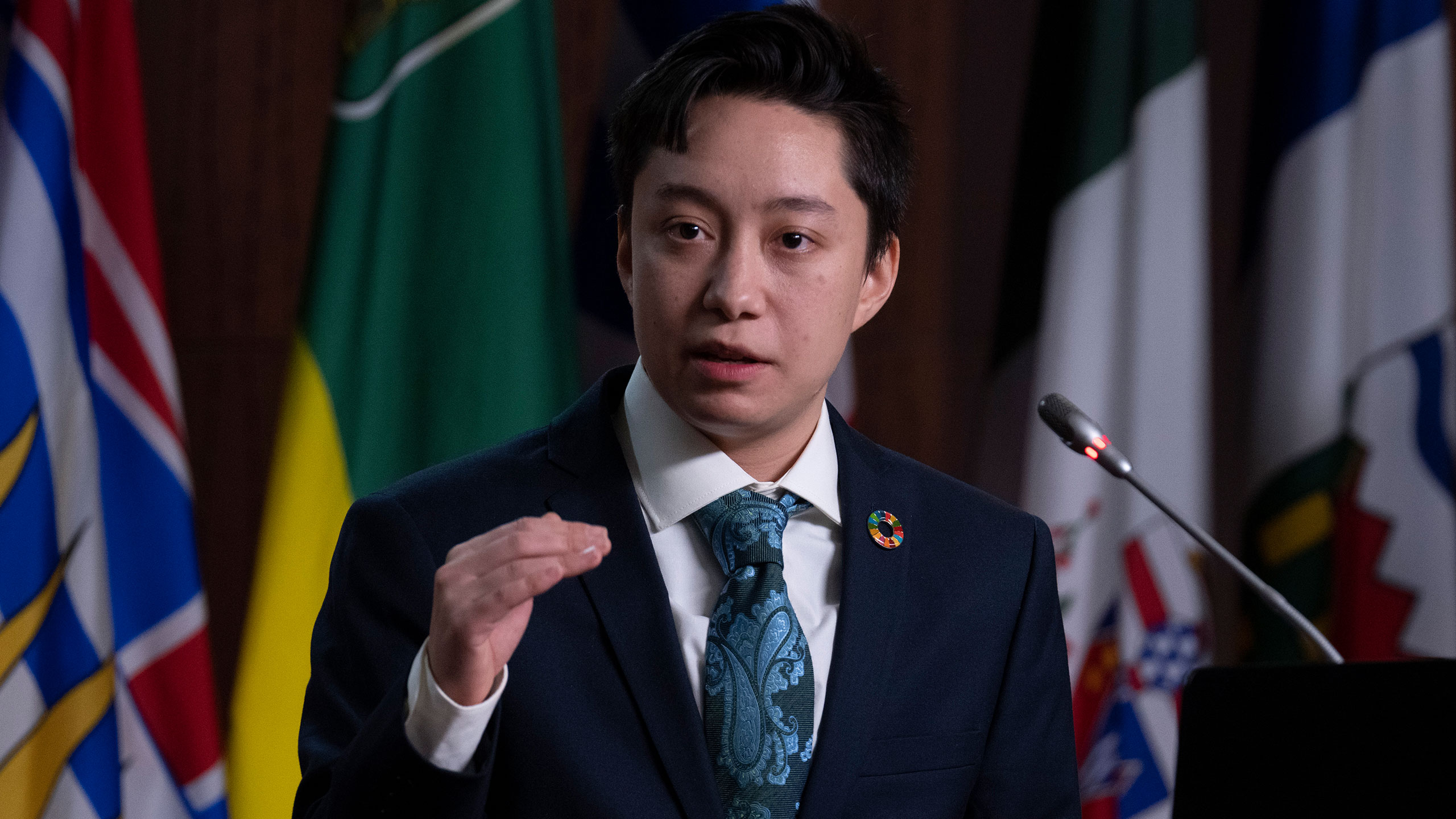
Credit: The Canadian Press/Adrian Wyld
Outside of Canadian federal politics, queer and trans people were elected around the world. As of November, more than 1,000 openly LGBTQ2S+ officials will have concurrently served in the U.S., according to American political action committee LGBTQ Victory Fund. That includes a number of trans and non-binary officials—even in a year marred by anti-trans legislation. Xander Orenstein became the first non-binary person elected to a judicial position in the U.S., winning their race for the Allegheny County Magisterial District Court in Pennsylvania, while Thu Nguyen became the first non-binary person elected in Massachusetts. And that’s all on the heels of historic wins in last year’s American election, which saw the election of Sarah McBride, Taylor Small and Stephanie Byers.
Elsewhere in Canada, non-binary and trans people found themselves in new positions of power. Amita Kuttner, a non-binary astrophysicist, became the interim leader of the Green Party and the first trans person to lead a federal party in Canada. “My intention is to do the best job that I possibly can to just be a positive example, and then to share that joy in the best way I possibly can,” they told Xtra’s Mel Woods. Meanwhile, goth non-binary trans lesbian Ophelia Ravencroft became a city councillor in St. John’s, Newfoundland—the first trans elected official in the city. And Nova Scotia’s Lisa Lachance became the province’s first genderqueer MLA, earning them the title “Mx. Deputy Speaker.”
The trend continued around the world, too. A small town in Bangladesh elected its first trans mayor, Nazrul Islam Ritu. Chile’s Emilia Schneider Videla became the country’s first trans official elected to its national legislature. Germany elected two trans women—the Green Party’s Nyke Slawik and Tessa Ganserer—to its parliament. The list goes on, as a rainbow wave continues to sweep over the globe.
Canada outlawed conversion practices nationwide
It took a marathon three years, three bills and a petition to make it happen, but Canada passed a ban on conversion practices with just weeks to spare in 2021. On Dec. 2, the House of Commons voted to fast-track Bill C-4, which would amend the Criminal Code to make it illegal to force anyone—an adult or child—to undergo conversion practices. A week later, the Senate opted to fast-track the legislation, too; by Dec. 8, it had received royal assent.
It’s been years of will-they-won’t-they when it comes to banning the harmful and discredited practice. The first to propose ending conversion practices across Canada was former NDP MP Sheri Benson, who tabled a petition calling on the Trudeau government to take action; the Liberals turned that opportunity down, suggesting conversion practices would fall under provincial jurisdiction. They quickly changed their minds: shortly after their 2019 election win, the Liberals tabled their own bill to end the practice, but that bill died when Trudeau opted to prorogue Parliament in August 2020 because of COVID-19. When MPs returned in October 2020, it was tabled again, and passed through the House of Commons—only to stall in the Senate when the 2021 election was called this summer.
The opposition didn’t make it an easy fight, either. Though a third bill made its way through the House of Commons, 62 Conservative MPs—more than half of the party’s caucus—voted against the legislation. A B.C. MP went as far as to suggest conversion practices could be helpful, citing the story of a young woman who relieved herself of “unwanted lesbian activity.”
The bright side? This time around, all parties agreed it was time to end conversion practices in the country. In fact, it was Conservative MP Rob Moore who called on the House to fast-track the bill. Whether political maneuvering or a gesture of goodwill, the unanimous vote for LGBTQ2S+ rights became symbolic of movement in the right direction. And there are other countries on the right path: France, where parliament moved to outlaw the practices this month, and New Zealand, which tabled a bill to ban conversion practices in July.
More than 100 anti-trans bills were tabled in the U.S.
It was a difficult year for trans Americans: across 37 states, in all regions of the country, elected officials tabled anti-trans legislation targeting primarily children and young adults’ access to health care, team sports and safe educational spaces. More than 100 bills have been tabled so far in 2021. Among the most extreme: a Florida bill, signed into law this summer that permits genital inspections to allow a student to play with gendered sports teams.
For many trans youth and their families, the prospective legislation has been enough to uproot their lives to seek refuge in safer states. In Texas—the worst hit state, where 40 anti-trans bills have been tabled—Xtra contributing editor Nico Lang found parents of trans kids working to vote out lawmakers who have taken aim at their children. “This is where I was born, and this is where I want to raise my kids,” one mother told Lang. “We don’t want to have to leave.”
As Xtra’s Mel Woods wrote this April, this kind of legislation tracks back to the early 2010s, when anti-trans “bathroom bills,” restricting trans people’s access to public washrooms, popped up across the country. That momentum has allowed for a co-ordinated effort among right-wing lawmakers and policy-writers. Writing these bills has become like “a factory assembly line,” says Jules Gill-Peterson, an associate professor of english and gender, sexuality, and women’s studies at the University of Pittsburgh; a template for the legislation has made it even easier to replicate throughout states.
Trans activists and allies continue to fight back. In June, American LGBTQ2S+ organization Human Rights Campaign filed a lawsuit against the state of Florida for the aforementioned genital inspections bill. Youth activists testified in front of state committees to reconsider anti-trans legislation. But as transphobic sentiment continues to circulate among those in power, the fight is bound to continue well beyond 2021.
International anti-LGBTQ2S+ powers continue to reign
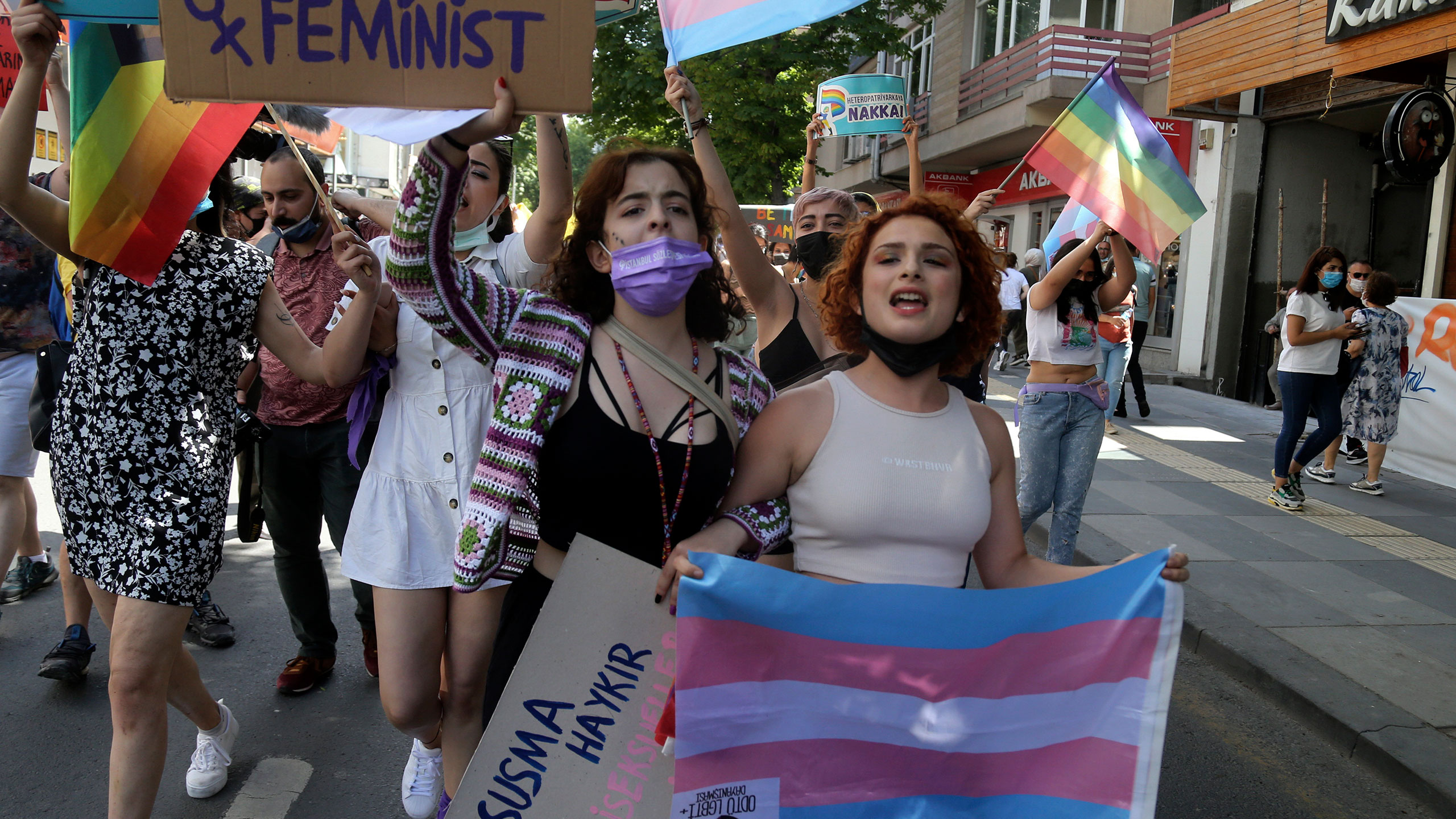
Credit: AP Photo/The Canadian Press
Around the world, familiar anti-gay forces continued their war against LGBTQ2S+ rights.
Despite the European Union’s efforts to shut down Hungarian president Viktor Orbán’s anti-gay tirade, the country’s parliament passed a resolution in November making way for a referendum on LGBTQ+ issues ahead of an election. The referendum calls for schools to limit teaching on queer and trans issues. A European human rights body has since deemed that the referendum breaches international rights standards—a sign that positive change could be on its way.
Meanwhile, a year after Andrzej Duda was re-elected president on an anti-gay platform, Poland instituted “LGBT-free zones”—regions where LGBTQ+ “ideology” would be unwelcome. As violence and discrimination deepened in the country, many queer and trans residents fled, triggering what the New York Times called “an exodus of gay people.” For those who stayed put, rates of depression are on the rise, according to a recent study.
In Turkey, LGBTQ+ activists and allies took to the streets this year after a raid on a university’s LGBTQ+ campus club room. The move prompted Turkish authorities and lawmakers to deride queer and trans people, who they refuse to recognize in the country. “LGBT, there is no such thing. This country is national and moral and moves into the future with these values,” Turkish President Recep Tayyip Erdoğan said.
And in Ghana, activists faced off in parliament last month over an anti-gay bill that would make it crime to be queer and trans. The legislation would punish LGBTQ+ Ghanaians with jail sentences and even force some to undergo conversion practices.
Love prevailed around the world
Even amid the hate, love won in many countries this year.
In September, Switzerland held a referendum on gay marriage. Sixty-four percent of Swiss voters decided in favour of marriage equality, bringing the European country in line with the remainder of its western neighbours. The country will allow same-sex marriage beginning next July.
And just weeks ago, Chile became the 31st country in the world to legalize same-sex marriage. The proposal passed through the Chilean Senate on a 21-8 vote on Dec. 7, and on Dec. 10, Chilean President Sebastián Piñera signed the bill into law. “All couples who so wish, regardless of their sexual orientation, will be able to live, love, marry and form a family with all the dignity and legal protection they need and deserve,” the president said.
Did we miss a story? Let us know in the comments or on Twitter @XtraMagazine.
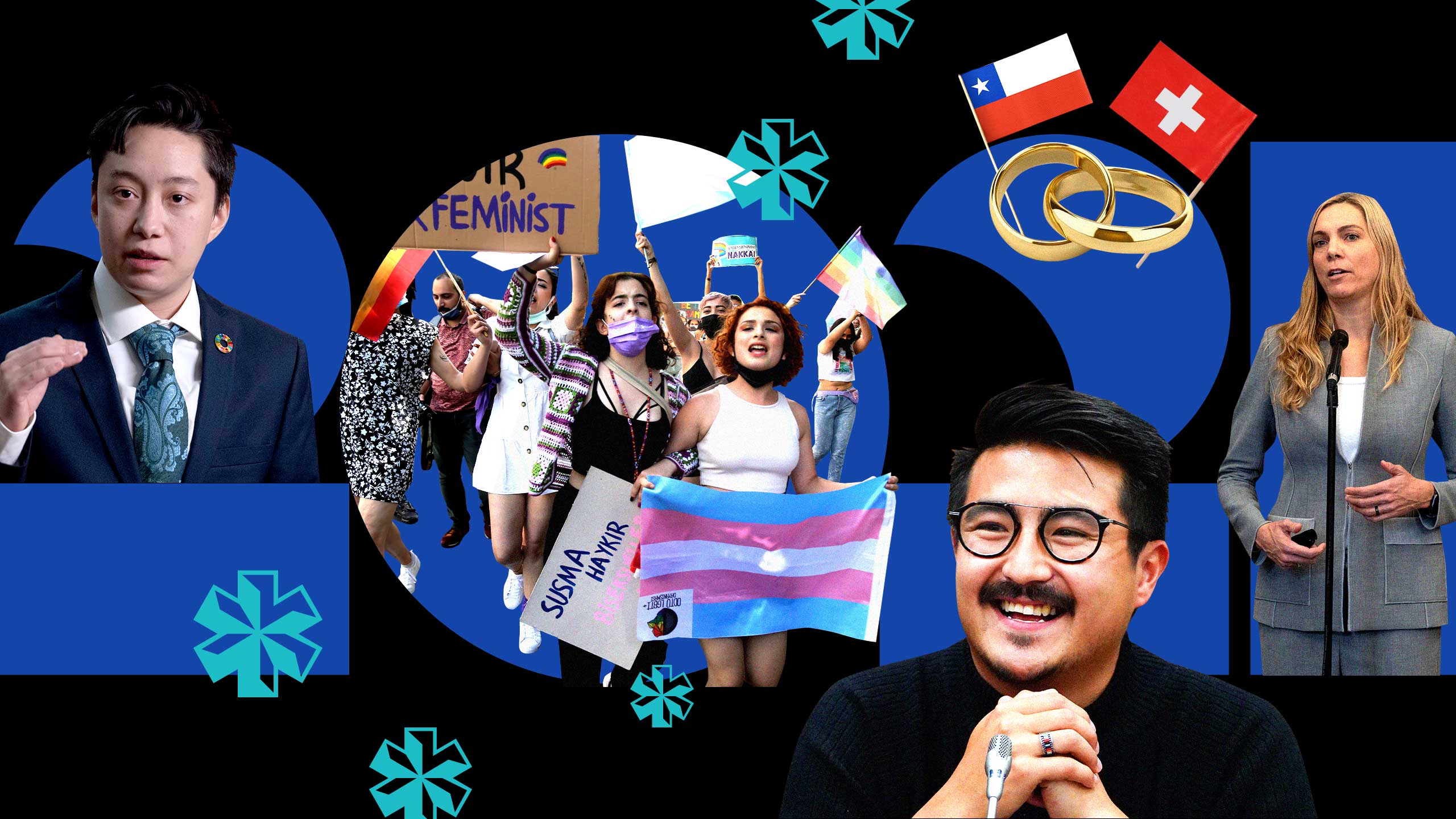

 Why you can trust Xtra
Why you can trust Xtra